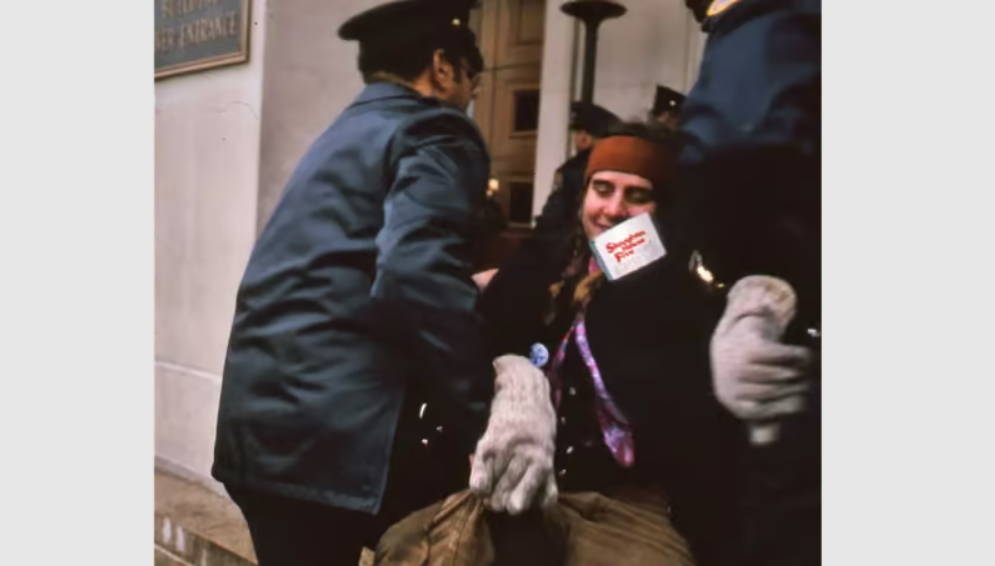Table of Contents
Charles Krblich
Chuck Krblich works in the insurance and reinsurance industries as a catastrophe manager.

Il nous faut de l’audace, encore de l’audace, toujours de l’audace!
(We need audacity, more audacity, always audacity!) Georges Jacques Danton
Just a short time ago, on a Saturday, before a flake of snow glistened in the air on the following Sunday, an imminent weather emergency caused New York Governor Kathy Hochul to “ban travel” and postpone the Steelers-Bills super Wild Card game until the following Monday.
Certainly, severe weather is a legitimate reason to cancel or postpone events, and to stridently warn against travel during white-out conditions in a blizzard, but a travel ban?
Banning isn’t limited to travel during white-out conditions in blizzards though. It is truly a bipartisan pastime. Ban gas stoves; Ban gas-powered generators; Ban books; Ban misinformation; Ban fake news; Ban gender affirming care; Ban parents from being notified of gender transitions; Ban abortions; Ban the banning of abortions; Ban gasoline powered cars and trucks; Ban the unvaccinated; Ban the unmasked; Ban DEI; Ban gas boilers; Ban coal; Ban nuclear; Ban high-capacity magazines; Ban guns; Ban incandescent lightbulbs…
Those bans are just to fix all of society’s important problems, but there are presumably less important things that need banning as well. What would really help is banning honors classes to produce equity, banning youth tackle football, and even banning sledding! In Canada!
If we pass just a few more laws that ban the things we don’t like and banish the people who support them, utopia will arrive and thou-shalt-not do anything.
Maybe you agree with some of these bans and maybe you disagree with others. Certainly if you have any political leanings at all, some of these bans will find your enthusiastic support and others your passionate fury. The most difficult position to hold is that none of these things should be banned, and people should largely be free to do as they please. That position infuriates everyone!
Yet it is clear beyond any doubt that bans simply don’t work. I was a child during the “Just Say No” anti-drug campaign. Drugs were banned, and yet always available. Chicago has banned guns for years and yet has incredibly high gun violence. We banned smiles, playgrounds, and normal personal interaction for years in order to ban Covid and we still catch Covid.
Ironically, it is the rebels who pay no attention to the bans that are often celebrated by history. This is true both in real life and in fictional epics familiar to everyone.
In real life, the Russian Samizdat reproduced, often by hand, great works of literature like Doctor Zhivago and The Gulag Archipelago. Much of their work was producing political texts and personal statements – editorials – that often criticized the Soviet government and offered alternative solutions to the government’s handling of events. The members of the Samizdat faced severe punishment involving torture and death if they were caught, and we celebrate their courage today.
Fictionally, we celebrate the scrappy rebels in the Star Wars franchise, we root for Neo to win back humanity’s freedom from the scourge of the machines in the Matrix franchise, and we feel the passion and duty of Atticus Finch as he does the unthinkable in his society and defends a black man accused of raping a white woman because it’s the right thing to do.
There are so many more examples, but what is important is that in each example there are laws – either written or unwritten – that are being broken in service of true liberalism. In the Samizdat example, there are often steep personal costs paid, but the delusions of the Soviet state eventually faded and the members of the Samizdat became celebrated heroes rather than vicious criminals spreading misinformation.
In each of the stories there is inevitably a society, culture, or villain that is unbearably cruel and filled with hypocrisy and judgment. Whereas the villain wants complete control, abject anarchy, or the banishment of all non-conformers, the heroes always have the strength to follow their own conscience.
Isn’t this the world we live in? Both sides see themselves as the heroes resisting the unbearable cruelty and hypocrisy of the other. To quote Canadian Prime Minister Justin Trudeau:
They don’t believe in science/progress and are very often misogynistic and racist. It’s a very small group of people, but that doesn’t shy away from the fact that they take up some space.
This leads us, as a leader and as a country, to make a choice: Do we tolerate these people?
What are the means and methods for not tolerating someone? Banishment is, of course, one of them, and thus bank accounts were frozen, disabled grandmothers assaulted, and rebel ringleaders jailed. The state does not need gulags if on one hand they can approve of some riots but use unapproved protests to turn off your ability to bank, transact, work, and live with the flip of a switch.
The last few years have taught us how fast a person can be turned into swine and banished without remorse.
This moral dilemma is highlighted in one of the allegedly ‘banned’ books. ‘Banned’ because it has racist language, yet still freely available in every book store and on Amazon, there is a character who is a strict disciplinarian who often chastises the main character for his recklessness. She is on a mission to ban his audacity and wildness. She desires to ‘civilize’ him.
That is ultimately what banning is trying to bring about: one’s idea of proper civilization.
Yet civilization thrives in the cracks and margins, in the collective behavior of individuals striving to live the lives they desire despite their circumstances. The Samizdat copied the great literature because it was worthwhile, and in our ‘banned’ book, our main character discovers his friend has been betrayed and will be returned to slavery if our character stands by idly.
So Huck Finn, who values his own sense of freedom more than anything, does what we all should do in the face of the ‘civilizers’: drop our pretenses and say, ‘All right, then, I’ll go to hell.’
In doing so, he follows his gut instincts and makes one of the most important moral decisions of his life. Maybe, if we follow that example, we wouldn’t be so concerned with fixing society by banning things like sledding, and would in turn find the lost joy that lives in untamed audacity and recklessness.
Republished from the author’s Substack.









